Search Results for: Ants
Skip to resultsCan’t find what you’re looking for? Visit our FAQ page.
1,664 results for: Ants
-
 Life
LifeThese are the 5 costliest invasive species, causing billions in damages
Invasive species have cost the global economy at least $1 trillion since 1970 and $162.7 billion in 2017 alone. The annual cost is increasing.
-
 Plants
PlantsModified genes can distort wild cotton’s interactions with insects
In a Yucatan nature park, engineered genes influence nectar production, affecting ants’ and maybe pollinators’ attraction to the wild cotton plants.
-
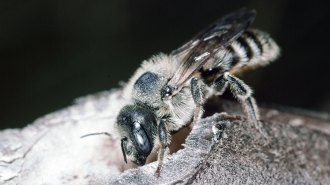 Animals
AnimalsBee larvae drum with their butts, which may confuse predatory wasps
Dual percussion instruments — one on the head, the other on the rear — give mason bee larvae a peculiar musical gift that may be a tool for survival.
By Jake Buehler -
 Ecosystems
EcosystemsWildfires launch microbes into the air. How big of a health risk is that?
How does wildfire smoke move bacteria and fungi — and what harm might they do to people when they get there?
By Megan Sever -
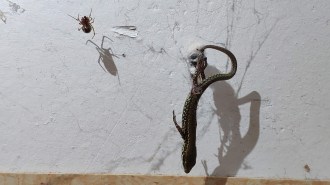 Animals
AnimalsHow a tiny spider uses silk to lift prey 50 times its own weight
Dropping the right silk can haul mice, lizards and other giants up off the ground.
By Susan Milius -
 Animals
AnimalsNaked mole-rat colonies speak with unique dialects
Machine learning reveals that these social rodents communicate with distinctive speech patterns that are culturally inherited.
-
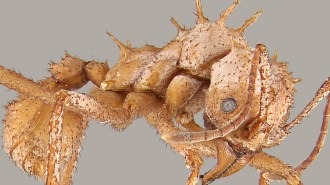 Animals
AnimalsMineral body armor helps some leaf-cutting ants win fights with bigger kin
Researchers have found that at least one species of leaf-cutting ant has a tough layer of calcite on its exoskeleton.
-
 Animals
AnimalsFire ants build little syphons out of sand to feed without drowning
To escape a watery death, some fire ants use build sand structures that draw the insects’ sugary, liquid food out of containers and to a safer place.
-
 Animals
AnimalsNaked mole-rats invade neighboring colonies and steal babies
Naked mole-rats invade neighboring colonies, steal pups and evict any others left behind. The show of force may be central to their underground lifestyle.
By Jake Buehler -
 Plants
PlantsThis parasitic plant consists of just flashy flowers and creepy suckers
With only four known species, Langsdorffia are thieves stripped down to their essentials.
By Susan Milius -
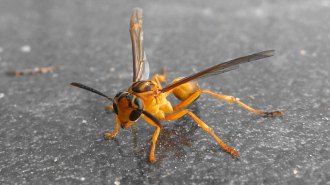 Animals
AnimalsA wasp was caught on camera attacking and killing a baby bird
Some wasps scavenge carrion or pluck parasites off birds, but reports of attacks on live birds are rare.
-
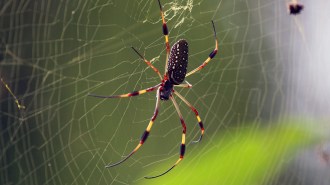 Animals
AnimalsSome spiders may spin poisonous webs laced with neurotoxins
The sticky silk threads of spider webs may be hiding a toxic secret: potent neurotoxins that paralyze a spider’s prey.